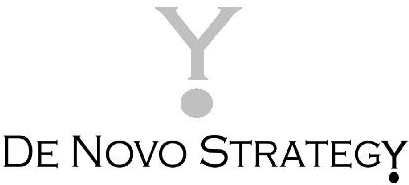By Wendell Brock, MBA, ChFC
Years ago when I was backpacking in the High Sierras, my Boy Scout leader taught me that the air temperature was coldest just before dawn. Hopefully, we are experiencing that time now and things will get better as dawn approaches, because this quarter's report is pretty ice cold! Total net income from insured banks is off 87 percent from second quarter last year to $5 billion. "Loss provisions totaled $50.2 billion, more than four times the $11.4 billion quarterly total of a year ago." Provisions drained almost one-third (31.9 percent) of the industry's operating revenue-the highest level since the third quarter of 1989.
The average return on assets (ROA) was only 0.15 percent; in the same quarter last year, it was 1.21 percent. Larger institutions (over $1 billion in assets) suffered a bit more; their ROA was 0.10 percent. The average ROA for the smaller institutions (less than $1 billion in assets) was 0.57 percent. In the same quarter last year, the ROAs were 1.23 percent and 1.10 percent, respectively. Nearly two of three institutions (62.1 percent) reported a lower ROA this quarter. Almost 18 percent of banks, approximately 1,530 in number, were unprofitable this quarter; in the second quarter of 2007, this percentage was 9.8 percent.
Noninterest income was 10.9 percent lower than in second quarter of 2007, dipping to $60.8 billion. This decline was due in large part to lower trading income, which totaled only $5.5 billion and was down 88.6 percent from last year. A revenue bright spot showed up in net interest income, which increased by $8.2 billion (9.3 percent) over last year, with servicing fee income rising 35.9 percent or $1.9 billion. Bank customers paid more in service charges this quarter by $853 million or 8.6 percent over year-earlier levels.
Net interest margin ticked up slightly to 3.37 percent compared to the first quarter's margin of 3.33 percent. "Improvements and declines were fairly evenly divided among insured institutions, with 46.9 percent reporting lower margins than in the first quarter, and 51.5 percent reporting improved NIMs." The average yields on interest-bearing assets fell 51 basis points, from 6.27 percent to 5.76 percent. During the same quarter, the interest expense dropped 57 basis points from 2.95 percent to 2.38 percent. The industry average has remained steady within a 5-basis-point range over the last six quarters. The margins for community banks have fallen by 21 basis points, and larger institutions have gained only 10 basis points.
Net charge-offs increased sharply to a total of $26.4 billion during the quarter, which is almost three-times the $8.9 billion in the second quarter of 2007. This is the largest quarterly charge-off rate since the fourth quarter of 1991. At large institutions, the charge-off rate was 1.46 percent; at small institutions, the rate was only 0.44 percent. The annualized industry average for the quarter was 1.32 percent, considerably higher than last year's quarterly average of 0.49 percent.
The amount of noncurrent loans and leases has risen for nine consecutive quarters, increasing by $26.7 billion or 19.6 percent. In the second quarter, all major loan categories experienced increases in noncurrent loans. By quarter-end, the industry's total noncurrent loans and leases reached 2.04 percent, the highest level since the third quarter of 1993. Provisions increased for the third straight quarter, nearly doubling the amount of charge-offs. Institutions set aside $23.8 billion in provisions during the quarter and industry reserves rose by 19.1 percent. The total ratio increased from 1.52 percent to 1.80 percent, which is the highest level since mid-1996. At the same time, the coverage ratio slipped slightly from 88.9 cents for every $1.00 of noncurrent loans to 88.5 cents, which is a 15-year low.
Sixty percent of the institutions reported a decline in their total risk-based capital ratios during the quarter. The industry added only $10.6 billion to its regulatory capital during the quarter. Dividend payments were significantly lower during the quarter, totaling $17.7 billion, less than half the $40.9 billion paid a year earlier. Only 45.5 percent of the institutions reported higher retained earnings compared to a year ago. "Despite the slowdown in capital growth and the erosion in capital ratios at many institutions, 98.4 percent of all institutions (accounting for 99.4 percent of total industry assets) met or exceeded the highest regulatory capital requirements at the end of June."
Total assets declined for the first time since the first quarter of 2002 and experienced the largest quarterly decline since the first quarter of 1991. The decline totaled $118.9 billion or 11.8 percent, with nearly 40 percent of banks reported lower assets at the end of June. OREO properties (acquired by foreclosure) increased by $3.5 billion (29.1 percent) during the quarter to $15.6 billion.
Small business and farm loans increased only 3.4 percent or $25.3 billion during the 12 months ending June 30. These loans currently account for 32.7 percent of all business and farm loans to domestic borrowers. Larger business and farm loans increased by $249.4 billion or 18.4 percent during the same period. Total deposits increased only $6.9 billion or 0.1 percent during the second quarter. This was mostly from deposits in foreign offices, which rose by $46.8 billion, while domestic office deposits decreased by $39.6 billion.
Reporting institutions dropped to 8,451, equating to a loss of 43 institutions. Two banks failed during the quarter, ANB Financial in Arkansas and First Integrity in Minnesota. Three mutual banks converted to stock ownership (combined assets of $1.1 billion). The FDIC's problem bank list increased by 27 banks this quarter, from 90 banks in the first quarter to 117. This is an increase of 40 new problem banks for the year. Assets of problem banks increased from $26.3 billion to $78.3 billion. During the quarter there were 24 new charters, which brings the total of de novo banks for the year to 62.
We can only hope this is as cold as it gets before the dawn!
Note: quotes are from the FDIC second quarter 2008 report.


